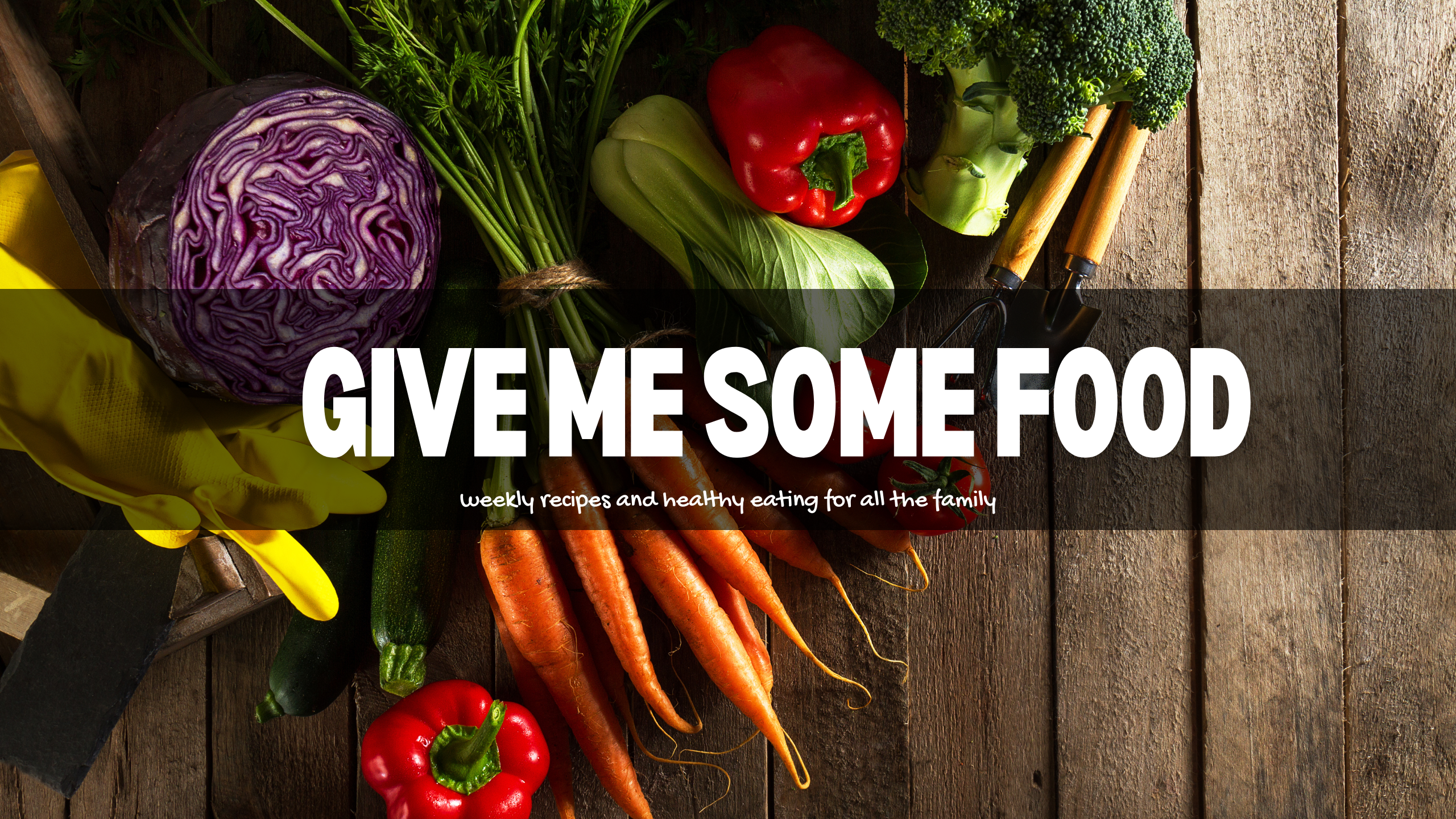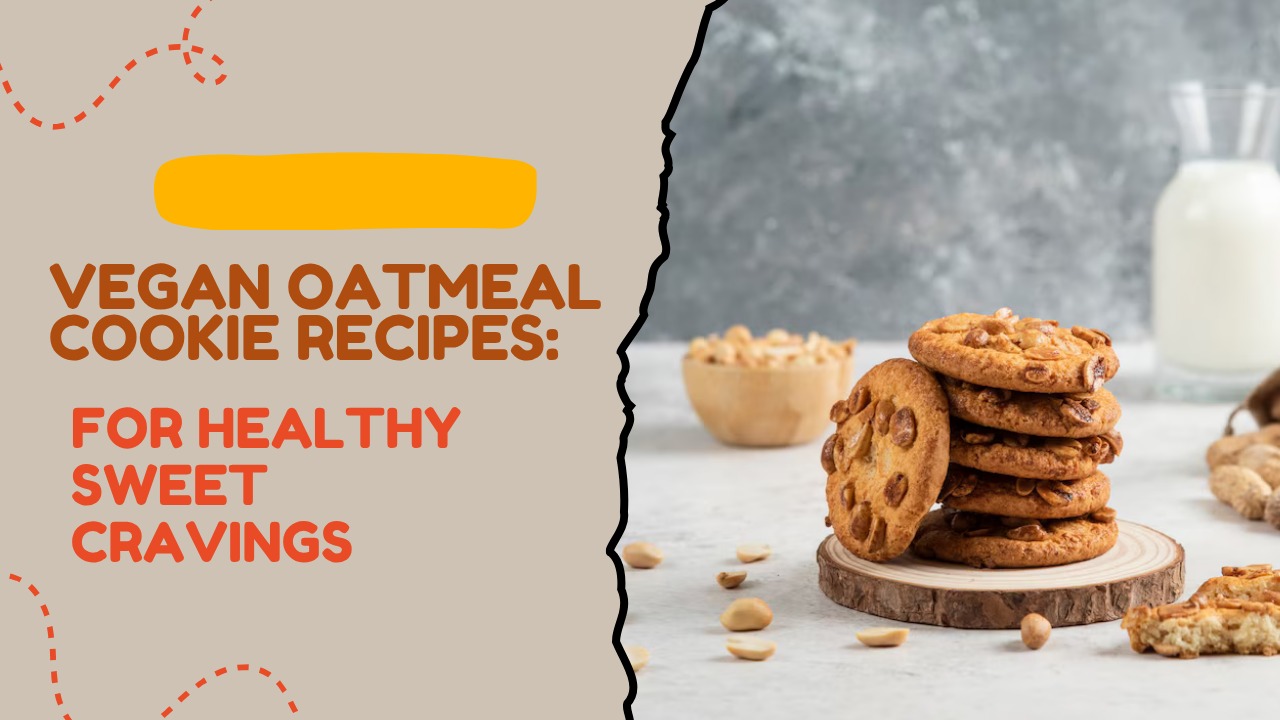Cookies are more than just a sweet treat—they’re a bite-sized indulgence and a nostalgic hug in edible form. Among all cookie varieties, oatmeal cookies stand out for their chewy texture, wholesome ingredients, and comforting flavor. For those embracing a plant-based lifestyle, vegan oatmeal cookie recipes offer the perfect way to enjoy this classic without compromise.
These cookies skip traditional ingredients like butter, milk, and eggs, replacing them with plant-based alternatives such as coconut oil, almond milk, and flaxseed “eggs.” The result? Delicious, chewy, and satisfying cookies that are just as good—if not better—than the originals. Vegan oatmeal cookie recipes are ideal for anyone looking to enjoy a healthier, cruelty-free twist on a classic treat.
Whether you’re fully vegan or just trying to cut back on animal products, these cookies prove that plant-based baking can be indulgent, nutritious, and absolutely delicious—all in one bite.
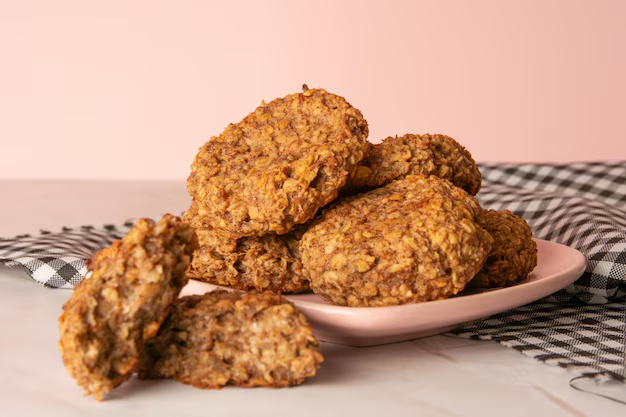
What Are Vegan Oatmeal Cookies ?
Vegan oatmeal cookies are plant-based versions of the classic oatmeal cookie, made without any animal-derived ingredients. That means no eggs, butter, or milk—yet they still deliver the chewy texture, rich flavor, and satisfying sweetness you’d expect from a great cookie. Thanks to wholesome, simple ingredients, vegan oatmeal cookie recipes are both nutritious and delicious.
These cookies typically use rolled oats as the base, combined with ingredients like coconut oil or nut butter for richness, and flaxseed or mashed banana as an egg substitute. Natural sweeteners such as maple syrup or coconut sugar are often used for a healthier twist. With endless add-in options like raisins, chocolate chips, or nuts, vegan oatmeal cookie recipes are incredibly versatile.
Perfect for dessert, snacks, or even breakfast, vegan oatmeal cookies prove that you don’t need animal products to enjoy a tasty treat. They’re ideal for anyone looking for a kinder, healthier way to bake.
Vegan oatmeal cookies are a plant-based twist on the classic oatmeal cookie. They replace traditional animal-based ingredients with vegan-friendly alternatives:
Butter → Coconut oil, vegan butter, or nut butter
Eggs → Flax eggs, chia eggs, mashed bananas, or applesauce
Milk → Plant-based milk (like oat, almond, or soy milk)
Despite these substitutions, you still get the chewy, hearty bite of traditional oatmeal cookies. The rolled oats add texture and fiber, while add-ins like raisins, chocolate chips, or nuts enhance flavor and nutrition.
Why Choose Vegan Oatmeal Cookies ?
Vegan oatmeal cookies are more than just a sweet treat—they’re a smart, compassionate choice for those who care about health, the environment, and animal welfare. By using plant-based ingredients, vegan oatmeal cookie recipes offer all the flavor and texture of traditional cookies without the need for dairy or eggs.
Choosing vegan oatmeal cookies means enjoying a dessert that’s rich in fiber, nutrients, and natural sweetness. Ingredients like rolled oats, mashed bananas, nut butters, and maple syrup create a chewy, satisfying cookie that’s both wholesome and delicious. Plus, many vegan oatmeal cookie recipes can be customized to be gluten-free or refined sugar-free.
Whether you’re fully plant-based or just exploring healthier alternatives, these cookies are a guilt-free indulgence that fits a variety of dietary needs. With the right recipe, you’ll find that vegan oatmeal cookie recipes are not only better for you but also irresistibly tasty and comforting.
There are many compelling reasons to go for vegan oatmeal cookie recipes:
Healthier Choice: Most vegan recipes use whole-food ingredients and are lower in cholesterol and saturated fats.
Dietary Inclusivity: They are ideal for those with egg or dairy allergies and fit vegan or plant-based diets.
Sustainability: Vegan baking is more environmentally friendly, using fewer resources and generating less carbon.
Ethical Eating: By skipping animal products, you’re supporting a more humane and compassionate food system.
Customizable and Delicious: You can experiment with different sweeteners, spices, fruits, and even vegetables!
When to Make Vegan Oatmeal Cookies ?
Vegan oatmeal cookies are perfect for just about any occasion. Whether you’re baking for a party, a school event, or simply craving a sweet treat at home, vegan oatmeal cookie recipes are a go-to choice. They’re easy to make, filled with wholesome ingredients, and sure to please both vegans and non-vegans alike.
These cookies are ideal for holidays, potlucks, and gifting during special occasions. With customizable add-ins like chocolate chips, dried fruit, or nuts, you can adapt vegan oatmeal cookie recipes to fit any season or celebration. They also make great everyday snacks or lunchbox treats.
Even if you’re new to plant-based baking, vegan oatmeal cookies are beginner-friendly and nearly foolproof. Their hearty texture and rich flavor make them a favorite year-round. So whether it’s a cozy winter afternoon or a summer picnic, there’s always a perfect moment to enjoy your favorite vegan oatmeal cookie recipes.
Anytime. Anywhere. For any reason.
Vegan oatmeal cookies are perfect for:
Mid-day snacks
Lunchbox treats
Holiday baking
Gifting
Post-workout energy
Breakfast on-the-go
They are easy to batch-prep and store well, making them perfect for busy families, students, and working professionals.
How to Make Vegan Oatmeal Cookies
Making vegan oatmeal cookies is simple, fun, and rewarding—perfect for both beginners and seasoned bakers. The process starts with choosing the right ingredients to replace traditional animal-based items without sacrificing taste or texture. Vegan oatmeal cookie recipes typically use plant-based alternatives like coconut oil or vegan butter and flaxseed “eggs” instead of regular eggs.
To start, mix your dry ingredients: rolled oats, flour, baking soda, cinnamon, and a pinch of salt. In a separate bowl, combine your wet ingredients—such as mashed banana or flax eggs, coconut oil or nut butter, and a natural sweetener like maple syrup. Blend the wet and dry mixtures together until well combined.
At this point, you can customize your cookies with add-ins like dairy-free chocolate chips, chopped nuts, raisins, or dried fruit. Scoop the dough onto a baking sheet and bake at 350°F (175°C) for 10–12 minutes, or until golden around the edges.
Whether soft or crispy, vegan oatmeal cookie recipes deliver delicious results every time. They’re a perfect treat that’s kind to your body, animals, and the planet.
Making vegan oatmeal cookies is incredibly simple. Here’s a basic recipe to get started:
Basic Vegan Oatmeal Cookie Recipe
Ingredients:
1 cup rolled oats
¾ cup all-purpose or whole wheat flour
½ tsp baking soda
¼ tsp salt
½ tsp cinnamon (optional)
½ cup coconut oil (soft or melted)
½ cup brown sugar or coconut sugar
1 tbsp ground flax + 3 tbsp water (flax egg)
1 tsp vanilla extract
½ cup add-ins (raisins, chocolate chips, nuts)
Instructions:
Preheat oven to 350°F (175°C). Line a baking sheet with parchment paper.
Mix flax and water in a small bowl. Let sit for 5 minutes.
In a large bowl, mix oats, flour, baking soda, salt, and cinnamon.
In another bowl, combine coconut oil, sugar, flax egg, and vanilla.
Mix wet and dry ingredients until combined. Fold in add-ins.
Scoop dough onto baking sheet. Flatten slightly.
Bake for 10–12 minutes. Cool and enjoy!
Top Tips for Perfect Vegan Oatmeal Cookies
Use Rolled Oats for Texture
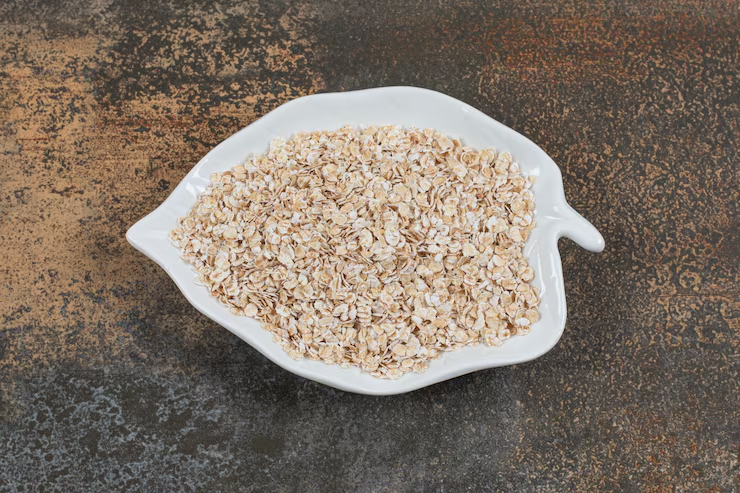
When it comes to the perfect chewy bite, rolled oats are the star of most vegan oatmeal cookie recipes. Unlike instant oats, rolled oats maintain their shape during baking, giving your cookies a hearty texture and rustic appearance. Their slightly nutty flavor also enhances the overall taste of the cookies.
Rolled oats not only improve texture but also add important nutrients like fiber, protein, and iron. This makes your cookies more filling and nutritious, especially when paired with plant-based ingredients. In vegan oatmeal cookie recipes, rolled oats provide the perfect base that holds everything together while delivering that classic chewiness.
So if you’re aiming for cookies that are soft in the center with just the right amount of bite, always reach for rolled oats. They’re a simple but powerful way to elevate the texture and nutrition of your favorite vegan oatmeal cookie recipes, making each bite both satisfying and wholesome.
Ingredient Insight: Old-fashioned rolled oats give the cookies chewiness and depth. Avoid quick oats—they make cookies mushy.
Benefit: Better texture, slower digestion, and longer-lasting energy.
Sweeten Smartly
Choosing the right sweetener can take your vegan oatmeal cookie recipes from good to great. Instead of relying solely on refined sugars, many plant-based bakers opt for natural sweeteners that add both flavor and nutritional value. Options like maple syrup, coconut sugar, agave nectar, or mashed bananas can provide sweetness with a healthier twist.
Each sweetener brings its own unique flavor profile. Maple syrup adds a rich, earthy sweetness, while coconut sugar offers a subtle caramel note. Mashed bananas not only sweeten your cookies but also add moisture and help bind the ingredients—perfect for egg-free baking. These smart swaps keep your vegan oatmeal cookie recipes wholesome without sacrificing taste.
By sweetening smartly, you create cookies that are not only better for your body but also more flavorful and satisfying. It’s all about balance—using natural ingredients that deliver the sweetness you crave while staying true to your plant-based lifestyle.
Use natural sweeteners like maple syrup, coconut sugar, or date paste.
Benefit: Lower glycemic index, better for blood sugar control, and richer taste.
Choose the Right Egg Substitute
Flax egg = earthy, dense texture.
Chia egg = slightly crunchier.
Mashed banana = adds sweetness and moisture.
Applesauce = soft, cakey cookies.
Benefit: Customize cookie texture and flavor to suit your preference.
Don’t Skip the Fat

When it comes to vegan oatmeal cookie recipes, fat plays a crucial role in achieving the perfect texture and flavor. While traditional cookies rely on butter, plant-based alternatives like coconut oil, vegan butter, or nut butters can offer the same richness without using animal products.
Fat helps bind ingredients, adds moisture, and creates that soft, chewy texture we all love in oatmeal cookies. Skipping or reducing fat too much can lead to dry, crumbly results that lack flavor and satisfaction. The right fat also enhances the spread of the cookie, helping it bake evenly and develop a golden, slightly crisp edge.
Whether you’re using almond butter for added protein or coconut oil for a light sweetness, the right fat makes a big difference in your vegan oatmeal cookie recipes. So don’t skip it—embrace it as a key ingredient that brings your plant-based cookies to life.
Coconut oil, almond butter, or vegan margarine are crucial. Fat binds the ingredients and gives richness.
Benefit: Prevents dry, crumbly cookies.
Chill Your Dough
One important step that can make a big difference in your vegan oatmeal cookie recipes is chilling the dough before baking. While it may be tempting to bake right away, a short rest in the fridge can significantly improve both texture and flavor.
Chilling helps the dough firm up, making it easier to scoop and shape. It also prevents cookies from spreading too much in the oven, giving you thicker, chewier results—perfect for classic oatmeal cookies. For best results, chill your dough for at least 30 minutes, or even overnight if time allows.
In addition to better texture, chilling gives the ingredients time to meld together. The oats absorb more moisture, and the spices deepen in flavor, resulting in cookies that taste even more delicious. If you’re looking to take your vegan oatmeal cookie recipes to the next level, don’t skip this simple yet effective step. Your cookies will thank you!
Letting the dough rest for 30 minutes helps hydrate the oats and firm the fats.
Benefit: Prevents spreading, enhances chewiness, deepens flavor.
Spice It Up
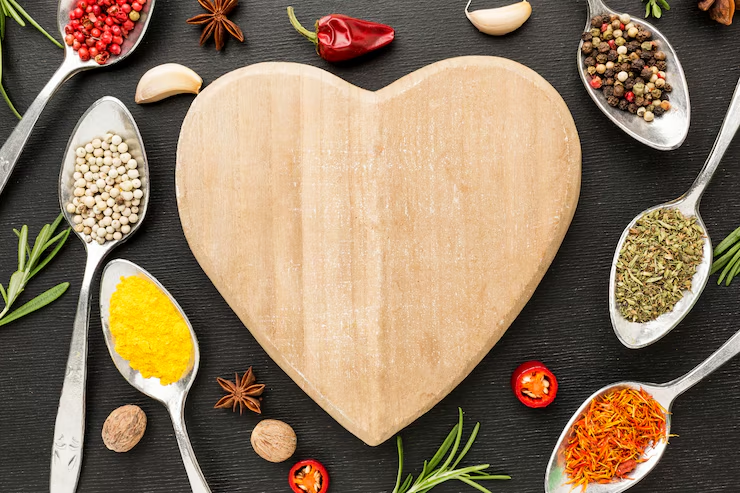
One of the easiest ways to elevate your vegan oatmeal cookie recipes is by adding spices. A touch of spice can transform a simple cookie into a flavorful, aromatic treat that feels warm and indulgent. Whether you’re baking for the holidays or just want a cozy snack, spices bring depth and personality to every bite.
Cinnamon is a classic choice, pairing perfectly with oats and enhancing the natural sweetness of your ingredients. You can also experiment with nutmeg, ginger, allspice, or cardamom to give your cookies a unique twist. These warm spices are staples in many vegan oatmeal cookie recipes, adding complexity without extra calories or sugar.
Don’t be afraid to get creative—try pumpkin spice for a fall-inspired version or a dash of cayenne for a bold kick. With the right blend, spices can turn your everyday vegan oatmeal cookie recipes into something extraordinary, delicious, and unforgettable.
Cinnamon, nutmeg, ginger, or even a dash of cardamom can transform your cookie.
Benefit: Adds warmth, complexity, and antioxidant properties.
Add Texture
One of the best things about vegan oatmeal cookie recipes is their ability to deliver rich flavor and a satisfying bite. To elevate your cookies even further, focus on adding texture. A mix of crunchy, chewy, and soft elements creates a more dynamic and enjoyable eating experience.
Start with a hearty base of rolled oats for that classic chewiness. Then, add texture boosters like chopped nuts, seeds, shredded coconut, or cacao nibs. These ingredients not only enhance the crunch but also boost the nutritional value of your cookies. Many vegan oatmeal cookie recipes benefit from these simple mix-ins, offering layers of flavor and texture in every bite.
For extra softness, include mashed bananas, applesauce, or nut butters. These also act as natural binders and add moisture without the need for dairy or eggs. With the right balance, your vegan oatmeal cookie recipes will come out perfectly textured and irresistibly delicious every time.
Mix in chopped nuts, seeds, or shredded coconut.
Benefit: Extra crunch, protein, and healthy fats.
Store Them Right
After baking your favorite vegan oatmeal cookie recipes, proper storage is key to keeping them fresh and delicious. These plant-based treats can stay soft, chewy, and flavorful for days if stored correctly. Whether you’re saving a few for later or prepping a batch for the week, good storage makes all the difference.
For best results, let your cookies cool completely before storing. Place them in an airtight container and keep them at room temperature for up to 4–5 days. To prevent sticking, especially with soft cookies, use parchment paper between layers. This keeps your vegan oatmeal cookie recipes just as delightful as when they came out of the oven.
If you want to enjoy them longer, freezing is a great option. Freeze cookies in a single layer first, then transfer to a sealed bag or container. When ready to eat, thaw at room temperature. It’s a smart way to keep your vegan oatmeal cookie recipes fresh and satisfying anytime.
Store in an airtight container at room temperature for 4–5 days, or freeze for up to 2 months.
Benefit: Prevents waste, ensures freshness, and allows batch baking.
Conclusion
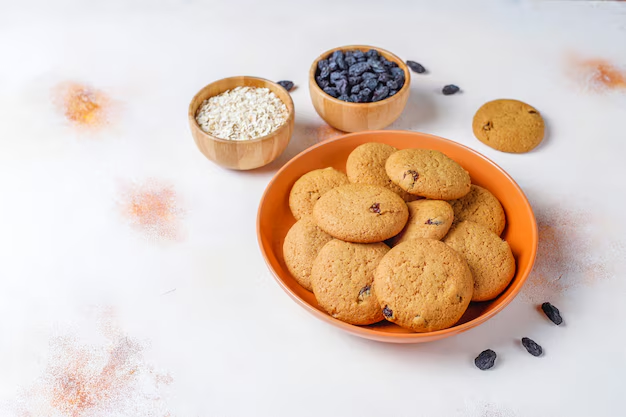
Vegan oatmeal cookies aren’t just sweet snacks—they’re a reflection of mindful choices. Choosing vegan oatmeal cookie recipes means you’re baking with compassion, supporting your health, and doing your part for the planet. These cookies are proof that plant-based treats can be just as delicious as traditional ones, without sacrificing taste or texture.
Whether you’re an experienced baker or just starting out, having a reliable vegan oatmeal cookie recipe is a game-changer. With wholesome ingredients and a few smart swaps—like flax eggs, coconut oil, or almond milk—you can create cookies that are chewy, flavorful, and 100% dairy- and egg-free.
Armed with the right recipe and a few expert tips, you’ll soon be baking cookies that win over vegans and non-vegans alike. From after-school snacks to holiday platters, vegan oatmeal cookie recipes fit every occasion with ease, offering a perfect blend of ethics, flavor, and homemade comfort.
FAQs
Q1. What ingredients are used in vegan oatmeal cookie recipes ?
Vegan oatmeal cookie recipes use plant-based alternatives in place of dairy and eggs. Common ingredients include rolled oats, whole wheat or all-purpose flour, coconut oil or vegan butter, flaxseed meal or chia seeds (as egg replacements), and natural sweeteners like maple syrup or coconut sugar. Add-ins like raisins, dark chocolate chips, or chopped nuts can be included for extra flavor and texture.
Q2. Can non-vegans enjoy vegan oatmeal cookies ?
Absolutely! Vegan oatmeal cookie recipes are delicious and satisfying for everyone—vegan or not. With the right combination of ingredients, these cookies offer the same chewy texture and rich flavor as traditional oatmeal cookies. Many people even prefer them for their clean, wholesome ingredients and ethical appeal.
Q3. Can I make gluten-free vegan oatmeal cookies ?
Yes, you can easily adapt vegan oatmeal cookie recipes to be gluten-free. Simply use certified gluten-free oats and substitute regular flour with gluten-free flour blends or oat flour. Be sure to check that all other ingredients, including baking powder and flavorings, are labeled gluten-free.
Q4. How do I store vegan oatmeal cookies to keep them fresh ?
Most vegan oatmeal cookie recipes will stay fresh for up to 5 days at room temperature in an airtight container. For longer storage, you can refrigerate them for up to 10 days or freeze them for up to 3 months. Be sure to cool cookies completely before storing to prevent sogginess.
Q5. What makes vegan oatmeal cookie recipes healthier ?
Vegan oatmeal cookie recipes often use whole food ingredients like oats, flaxseed, and nut butters, which are rich in fiber, healthy fats, and plant-based protein. Natural sweeteners like maple syrup or mashed banana can replace refined sugars, making the cookies a healthier alternative to traditional recipes.
